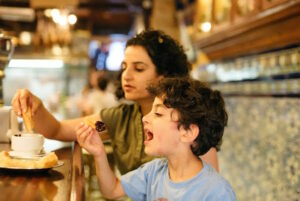Last Updated on December 22, 2025 by Emma Fajcz | Published: February 18, 2020
Quaint narrow streets, mind-blowing historic sites, outdoor terraces, and late-night drinks are all ideal ingredients for the perfect Seville vacation.
And yet, in this day and age, it’s easy to picture how a fairytale could turn into a nightmare. With big cities often being synonymous with crime, and tourism with pickpockets, most travelers considering a trip to Seville might wonder: how safe really is Spain’s fourth-largest city?
Whether you’re looking to get lost in the maze-like streets of the Jewish Quarter, eat tapas at midnight, or party the night away, read on and find out how to make your stay memorable for all the right reasons.
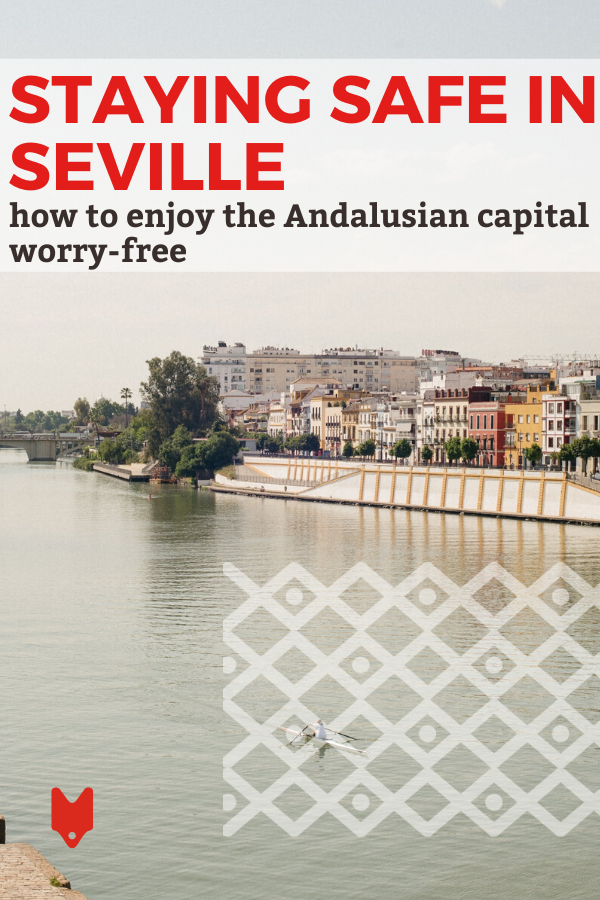
Keep calm and enjoy the city
First and foremost, you can rest easy and keep planning that dream vacation: Seville is a destination that not only is very safe on paper, but really does feel that way, too.
As a country, Spain has one of the lowest crime rates in Europe and Seville’s is lower than that of other major cities. Incidents of violent crime are uncommon and shouldn’t be of any particular concern if you’re preparing a visit.
In fact, as you become accustomed to Seville’s laid-back lifestyle, you’ll have no excuse not to enjoy an evening stroll, embrace those late-night tapas, or bar-hop until dawn! Even on weekdays and long after dark, the general atmosphere in the Old Town is relaxed, and you’ll find the streets are often packed with local families (including young children), students and visitors enjoying the vibrant nightlife.
Now, with this out of the way, just remember…
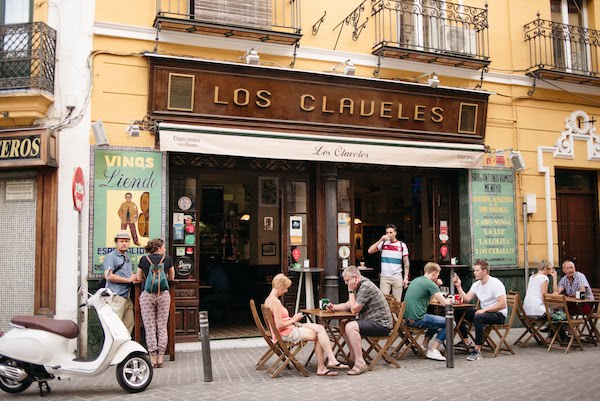
A few precautions
The sun is shining, the sights are stunning, and with enchanting flamenco guitar playing in the background, we know it can be all too easy to let your guard down. Even if incidents are relatively rare, it’s good to keep in mind that petty theft does occur in Seville.
Save yourself from unpleasant experiences and bureaucratic hassle by staying alert and following these simple, universal rules:
- As in any other major city, pickpockets tend to operate in crowded areas, so keep an especially close eye on your belongings on public transport, inside and outside bus or train stations, and in busy tourist hubs. Some of these include Hop-on Hop-off bus stops, Plaza de España, or outside the exit of the cathedral.
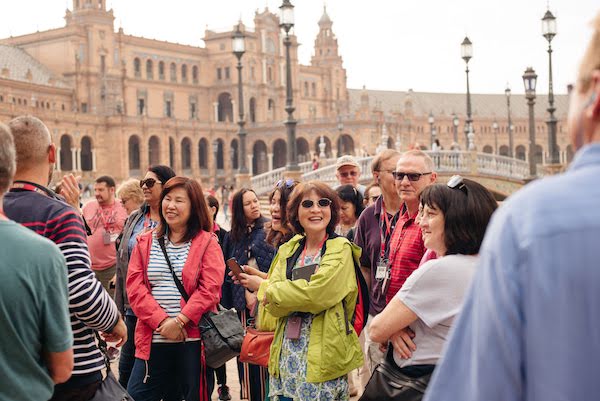
- Don’t leave phones or wallets in your back pockets. If carrying a backpack, do not keep valuables in the outer pockets or wherever they could easily be reached.
- Whether sitting out on a terrace or inside a restaurant, do not leave your bag unattended. Avoid hanging it on the back of a chair. Instead, opt to keep it on your lap or tie the straps to your leg or a chair leg.
- Don’t leave valuables such as phones and cameras unattended on the table.
- Be a little extra careful during special events and busy holidays, such as Christmas light shows, Holy Week processions, etc.
- Trust your instincts!
On the whole, we’ll insist that Seville isn’t especially notorious for its pickpockets and there’s no need to be overly paranoid. So, enjoy sipping that ice-cold beer, snapping too many shots of the Giralda, and simply remember what your Momma told you as a child. Which includes…
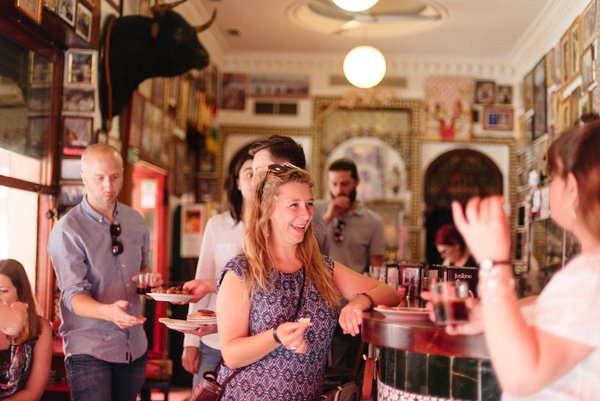
Don’t accept gifts from strangers
And especially not rosemary! In addition to Seville, you might also come across this common scam in other Spanish cities such as Madrid, Granada and Córdoba.
It involves groups of women gathered in busy tourist spots (quite often in the area surrounding the cathedral) and handing out sprigs of “good-luck” rosemary as a “gift.” Accept the supposedly-free regalo and the lady will quickly grab your hand to give you a not-so-free palm reading. The “session” will come at a high price as the fortune teller turns down coins, demands €10, and chases you down the street if you refuse to pay.
Although they can seem rather forceful and take you by surprise while you’re being distracted by the beautiful architecture, the scam is easy to avoid once you’re aware of its existence: decline firmly but politely, keep on walking, and good fortune should ensue.
What if something does happen?
In the unlikely event that you require urgent assistance, 112 is the free number you should call for all emergency services, including ambulance and police, anywhere in Spain.
If you need to report a theft or the loss of a document, you’ll have to file a denuncia, or police report, as you might require it later for insurance purposes. In some cases, the denuncia may be filed online, but you’ll have to drop by the police station (comisaría) to sign it anyway.
In the historic center, the comisaría is located on Alameda de Hércules, nestled between several pleasant bars and cafés. A good excuse and ideal spot to recover from your emotional experience, or even better, after having read our tips, celebrate a perfect, trouble-free vacation!


